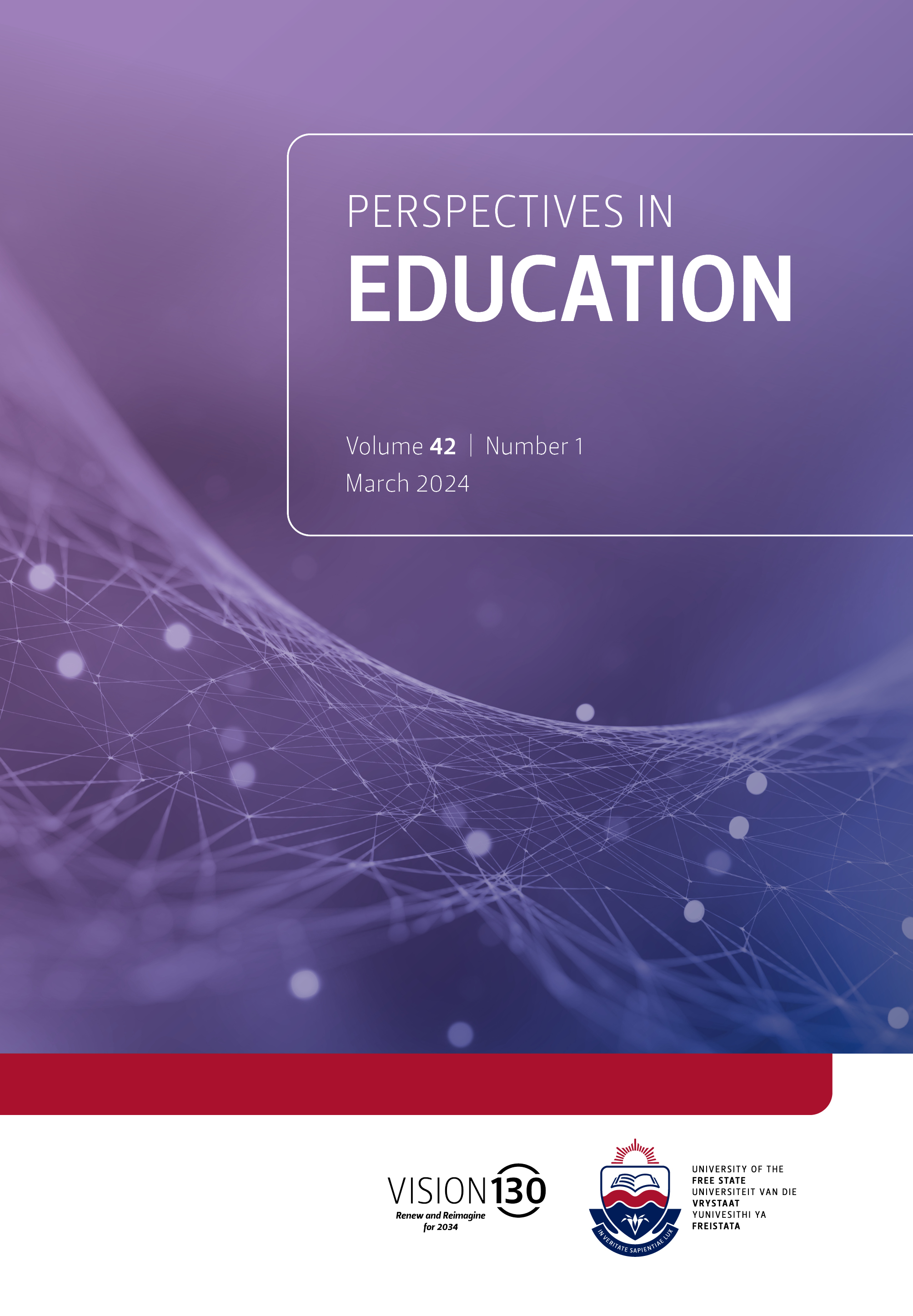Violence in rural schools in South Africa: Perceptions of school principals and school governing bodies
DOI:
https://doi.org/10.38140/pie.v42i1.7173Keywords:
governing bodies, leadership, principals, rural schools, violanceAbstract
Violence, crime, and abuse against learners present a grave picture of problems in South African schools and are on the increase, as substantiated in articles. daily newspapers and news bulletins. The problem of violence is a complex one, and has been elevated to a national concern. The study was based on the perceptions and experiences of school principals and school governing bodies (SGB). Semi-structured interviews and observations were used to collect data. The study revealed that the unprofessional conduct of teachers, teacher absenteeism, a weak criminal justice system, dysfunctional family structures, absence of school leadership, and a precarious school environment all contribute to violence. The study also produced evidence of unrealistic expectations of teachers who do not take the individual needs of learners into account. Although schools craft learner codes of conduct to deal with learner discipline, it seems that at most schools, the school management is unable to implement these codes of conduct effectively. Poorly managed schools are likely to experience more violence. This qualitative study was conducted at South African rural schools to obtain insights into the prevalence of violence in schools, and the management thereof. Using purposeful sampling we explored the perceptions and experiences of principals and school governing bodies (SGBs). Semi-structured interviews and observations were used to collect data, and these were analysed using Tech’s method of coding. The article recommends the enhancement of management, school effectiveness, and professional conduct of teachers in South African rural schools. School management teams should take a leading role of curbing learner violence by stringently enforcing learner codes of conduct and providing teachers with professional training so that they can manage learner discipline in schools effectively. Furthermore, learners and educators need to be empowered to manage conflict and to fulfil their education roles.
Downloads
##submission.downloads##
Published
How to Cite
Issue
Section
License
Copyright (c) 2024 Pierre Du Plessis, Raj, Prof Mestry

This work is licensed under a Creative Commons Attribution 4.0 International License.









